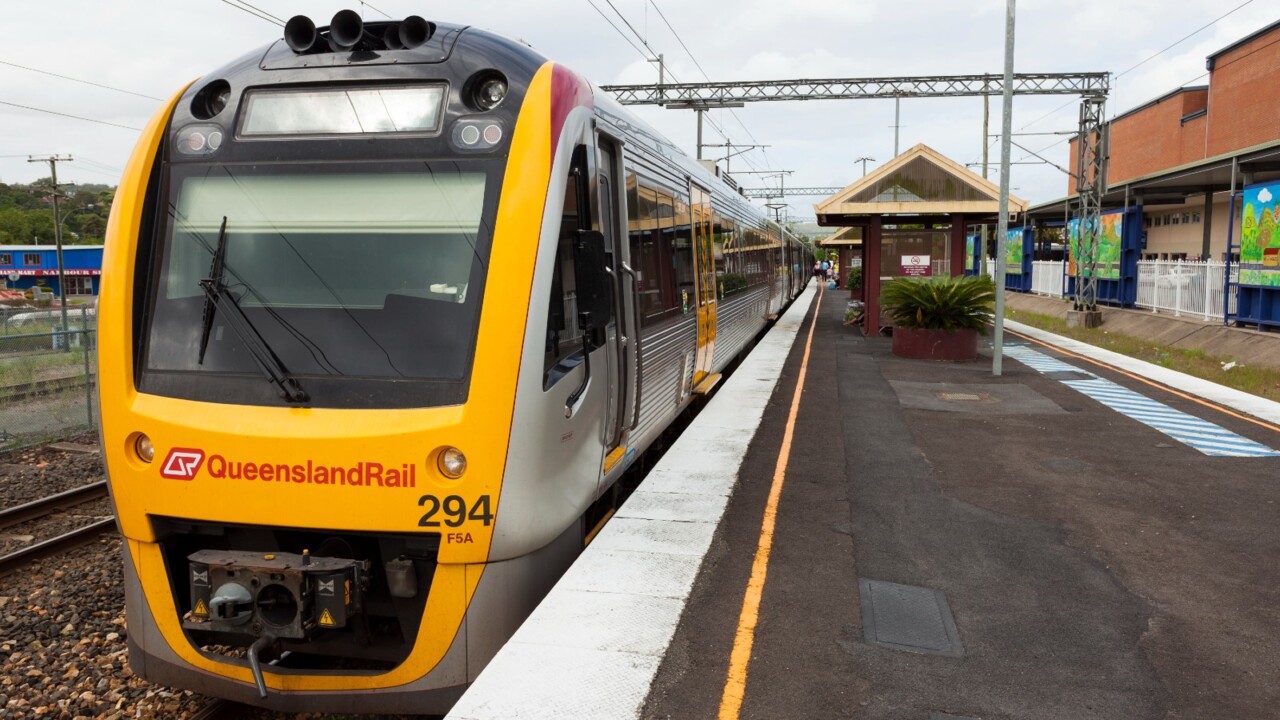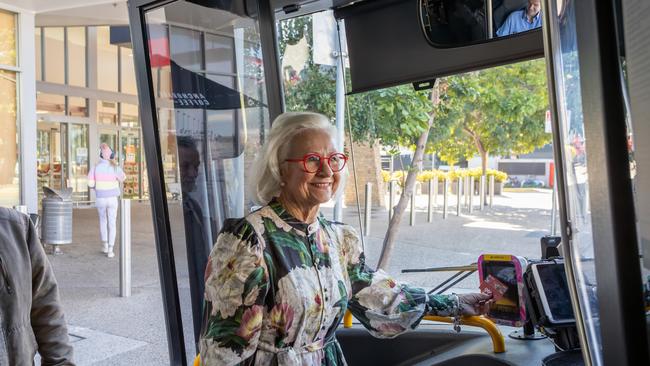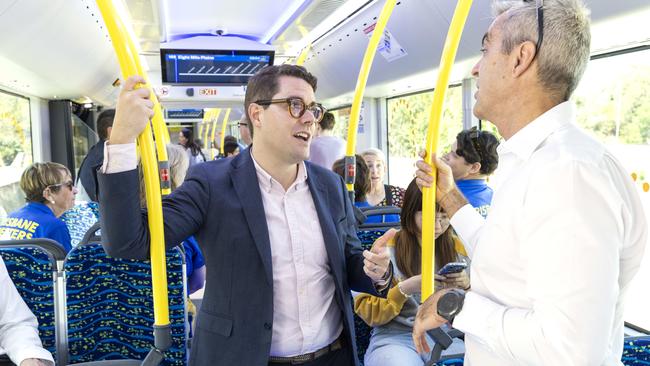NZ goes live with smart ticketing, delayed Qld system still to fully roll out
New Zealand will go live with its smart ticketing system from this week, after only two years of work but in Brisbane, commuters will have to wait until at least December 2027.

QLD News
Don't miss out on the headlines from QLD News. Followed categories will be added to My News.
New Zealand will go live with its smart ticketing system from this week, after only two years of work, but TransLink says it needs two more months to complete trials before Brisbane City Council bus patrons can pay with credit cards or phones.
An insider told The Courier-Mail that software for the contactless system, where commuters could pay with credit cards or smart phones, was ready two years ago.
But TransLink said there had been multiple problems and complexities, including the city’s multi-zone public transport system.
The move to 50c fares, effectively creating a single zone, had meant further changes on the “back end’’ of the system.
There also needed to be driver training and other changes across the bus network, said to be the second largest in the world after Sydney.
That meant it was more complex than “pressing one button’’, as the insider claimed.
New Zealand announced its system, called Motu Move, in late 2022 and began work to introduce it in early 2023.
It was successfully trialled last year and was due to roll out in the Canterbury region, centred on Christchurch, from later this week.
TransLink’s system has been an agonising seven years in the making.
It was now in use on Citytrains, 11 bus services and, since April last year, CityCats and KittyKats.
But last month new LNP Transport Minister Brent Mickelburg revealed the full smart ticketing program would now have to run until December, 2027 as delays meant more time was needed to test the software.
The time extension was also needed to deliver a replacement to the Go Card — particularly for those with concessions like students and seniors — before the system could be retired.

And it meant TransLink would need to run two systems for years to come, costing taxpayers another $60m.
Council transport chair Councillor Ryan Murphy said the bungled roll out was frustrating.
“Labor’s washed-up (former) transport minister Mark Bailey continues to cast a long shadow, with the marathon next-generation ticketing roll out just one of his many disappointments,’’ Mr Murphy said.
“While other jurisdictions (such as New Zealand) could deliver similar projects in two years, the Labor Government tried for seven years and still couldn’t get the job done.
“The Crisafulli (LNP) government is getting the project back on track and we look forward to smart ticketing being introduced on Brisbane buses and metro services as soon as possible.’’
A TransLink spokesman said the new ticketing system was now used by 16 public transport operators across the southeast including southern Moreton Bay island ferries, Gold Coast tram services, and 11 bus companies in the Sunshine Coast, Ipswich, Moreton Bay and Redlands areas and parts of Logan.

Smart ticketing on those buses was first launched in August last year with customer trials on the final three bus operators (Brisbane City Council, Clarks Logan Bus Services and Kinetic Gold Coast) on track for completion in the next two months, he said.
“An operator-by-operator approach to the rollout has allowed a robust, controlled and measured approach to customer trials,’’ he said.
“Implementation requires configuration, training, testing and customer communication for each operator to ensure the system is stable and functioning effectively for each bus operator before moving on to the next go-live.’’
TransLink has wheeled out multiple excuses for the bungled delivery including ageing systems, a global microchip shortage due to covid supply chain impacts and a patchwork of service providers.
The $371m smart ticketing program was announced in mid-2018, with the promise of being delivered in four years.
More Coverage
Originally published as NZ goes live with smart ticketing, delayed Qld system still to fully roll out





